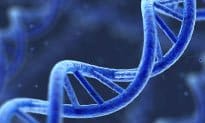University Hospital Southampton NHS Foundation Trust will use a supercomputer to interpret the genomic data of cancer patients to make sure they receive the most appropriate care.
The trust has signed a three-year deal with US tech firm NantHealth that will see the company use its NantTransporter technology to take raw genomic data from patients at University Hospital Southampton and put it through an analytics platform that can assess and annotate the information.
NantHealth will be able to create a clinical report that can suggest personalised treatment options specific to the individual cancer patient based on outcomes among patients with a similar genetic signature.
The collaboration will also help identify patients suitable for clinical trials of medicines.
The process is coordinated by NantHealth’s intelligent clinical operating system a cloud-based platform that integrates clinical, financial, operational and environmental data.
Adrian Byrne, director of IM&T at University Hospitals Southampton, told Digital Health News the cOS will allow NantHealth’s technology to interface with the trust, most likely through its electronic patient record, which is based on Ascribe’s CaMIS patient administration system.
NantHealth suggests that through the use of the cOS University Hospital Southampton will be able to organise care, monitor outcomes and control costs in personalised cancer care in real-time.
However, Byrne said he does not know yet wheter University Hospitals Southampton will have direct interaction with the cOS or not.
Personalised cancer medicines have made a breakthrough among healthcare systems the past few years with treatments such as Kadcyla and Iressa, which can target specific genetic mutations that contribute to tumour growth.
The sector is set to see significant growth this decade buoyed by the potential of immunotherapies, which encourage the body’s immune system to fight the disease.
Stand-out drugs in this area include Yervoy, Opdivo and Keytruda, all of which impressed at the recent American Society of Clinical Oncology conference in Chicago.
To support this emerging field, healthcare systems are investing in the technology that can determine what patients are suitable for what treatment.
As part of this NHS England has launched a project to sequence the genomes of 100,000 people, supported by a new set of NHS Genomic Medicines Centres – one of which is University Hospital Southampton.
NantHealth is also one of four companies chosen by Genomics England to work on the interpretation of the genomes of the first 8,000 patients participating in the 100,000 Genomes Project.
Byrne said this specific collaboration was not part of the trust’s work with Genomics England, but would “enhance it”.
He added that he was unable to go into detail about the partnership with NantHealth due to commercial sensitivities, but that he was very excited to be working with “one of the world leaders in genomics research”.
“For us it’s about enhancing our capabilities really. We are already a part of the Genomics England work and it’s going to add to our ability to contribute.”
He also mentioned that the trust will end up with gene sequencing capability as part of the collaboration.

